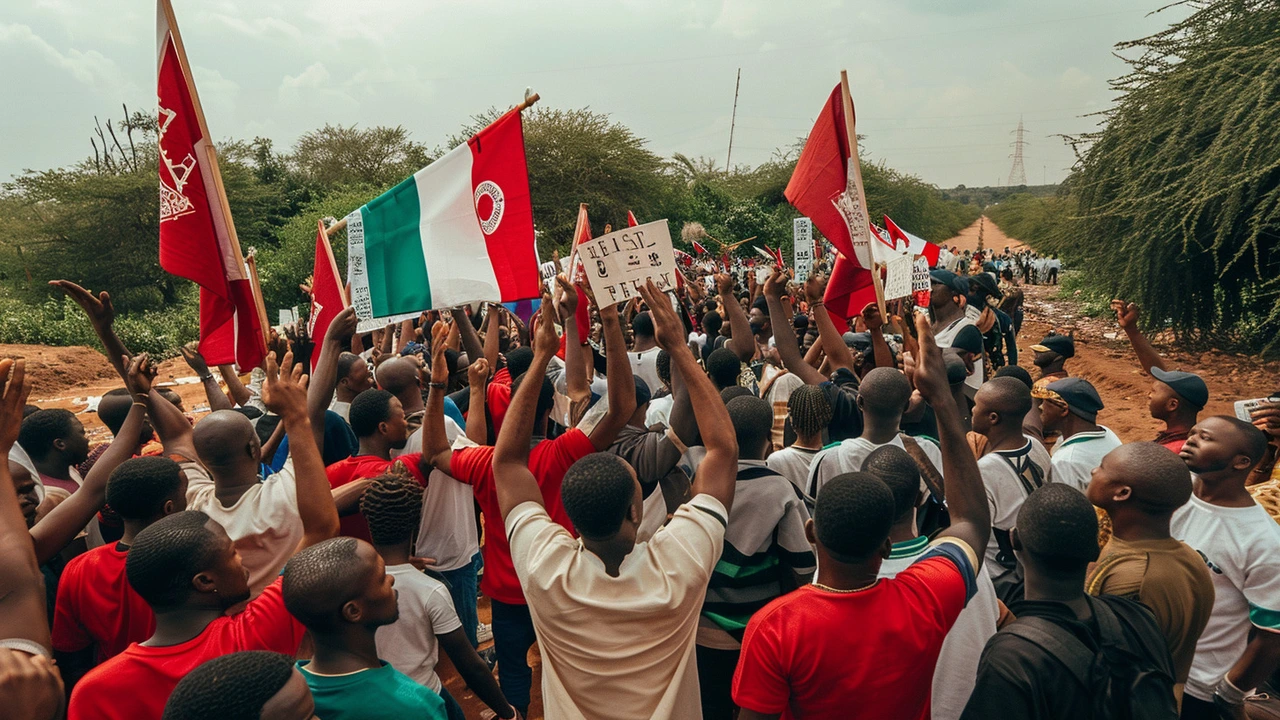Nigeria Labour Unions Launch Nationwide Strike Over Minimum Wage Dispute and Electricity Tariff Increases

Nigerian Labour Unions Begin Indefinite Nationwide Strike
On June 3, 2024, Nigeria witnessed the beginning of an indefinite nationwide strike led by two major labor unions—the Nigeria Labour Congress (NLC) and the Trade Union Congress (TUC). This strike was initiated as a response to the stalled negotiations between the unions and the government concerning a new minimum wage and the reversal of recent hikes in electricity tariffs. Tension had been building for several months as workers voiced their grievances over the high cost of living and inadequate wages. The disparity between what the unions demanded and what the government was willing to offer proved to be an insurmountable hurdle.
The Core Demands
The labor unions have been vociferous in their demands for a minimum wage of N494,000 per month, a figure significantly higher than the government's offer of N60,000. Initially, the unions had requested a slightly higher minimum wage of N497,000. However, the government proposed only a modest increase from the current N30,000 to N48,000, which further inflamed the unions. Festus Osifo, TUC chairperson, emphasized that the wage disparity was unacceptable, particularly given the rising cost of living and economic inflation in Nigeria. The unions have also called for the reversal of recent electricity tariff hikes and an end to consumer categorization into different bands, a practice they argue unfairly burdens lower-income households.
Failed Negotiations with the National Assembly
In the days leading up to the strike, tensions were palpable as the unions met with the National Assembly in an attempt to resolve the contentious issues. Unfortunately, the talks ended in a deadlock, with both sides unable to reach a consensus. The labor unions were adamant that their demands were not negotiable, citing the dire economic conditions that many Nigerian workers face daily. The government, on the other hand, insisted that the unions' demands were unrealistic and potentially damaging to the economy.
Government's Response
The Nigerian government has labeled the strike 'illegal and premature,' arguing that the unions should have exhausted all diplomatic avenues before resorting to industrial action. In a statement, the government warned that the strike could lead to significant public hardship and exacerbate political instability. Law enforcement agencies, including the police, have been put on high alert, with warnings issued that any unlawful activities or disruptions to public order will be met with stern measures. This stance has only served to heighten tensions, as workers and union leaders view the government's response as antagonistic and dismissive of their legitimate concerns.
Potential Impact on the Public
The indefinite strike is expected to have wide-reaching consequences on the Nigerian economy and public services. Schools, hospitals, and public transport are anticipated to be heavily impacted as union members across various sectors down tools in solidarity. The business community is also bracing for disruption, with fears that prolonged industrial action could hamper economic growth and drive investors away. Small and medium-sized enterprises (SMEs), in particular, may feel the brunt of the strike's adverse effects, struggling to cope with reduced manpower and operational challenges.
Public Sentiment and Support
Public opinion on the strike appears to be divided. While some Nigerians sympathize with the unions' demands and express their frustration over the rising cost of living, others are wary of the potential ramifications of a protracted industrial action. Social media platforms have become hotbeds of debate, with hashtag campaigns both for and against the strike gaining momentum. Community leaders and civil society organizations have called for calm and urged both the government and the unions to return to the negotiation table to find a mutually acceptable resolution.
Broader Political Implications
Politically, the strike poses a significant challenge to the current administration, which has already been grappling with economic instability and social unrest. Observers note that how the government handles this crisis could have far-reaching implications for its popularity and credibility. Some political analysts believe that a failure to address the unions' concerns adequately could lead to heightened disillusionment among the electorate, potentially affecting the outcome of future elections.
Historical Context
Strikes and labor disputes are not new phenomena in Nigeria's socio-economic landscape. Historically, the country has witnessed several high-profile strikes, particularly in the oil and gas sector, which have had profound impacts on the economy. The current strike, however, is distinguished by the broad coalition of unions involved and the expansive range of their demands. This suggests a deep-rooted sense of dissatisfaction among the workforce, which could be indicative of broader systemic issues.
International Reactions
International reactions to the strike have been cautiously measured. Global organizations and foreign governments have expressed concern over the potential destabilization of Nigeria, a key player in the African continent's economy and politics. Diplomatic channels are reportedly being used to encourage a peaceful resolution, with some international labor groups offering to mediate between the Nigerian government and the labor unions. The global investment community is also monitoring the situation closely, with economic analysts warning that continued unrest could affect market sentiment and investor confidence.
Looking Ahead
As Nigeria navigates this challenging period, the path forward remains uncertain. Both the government and the labor unions are under immense pressure to reach an amicable resolution that addresses the pressing issues at hand without further igniting public discontent. The outcome of this strike may well set a precedent for future labor disputes in the country, highlighting the need for more effective dialogue and negotiation frameworks. For now, Nigerians wait with bated breath, hoping for a swift and fair resolution to the ongoing crisis.